通用版小学英语小升初专题复习 一般过去时复习课件 (共62张PPT)
文档属性
| 名称 | 通用版小学英语小升初专题复习 一般过去时复习课件 (共62张PPT) | 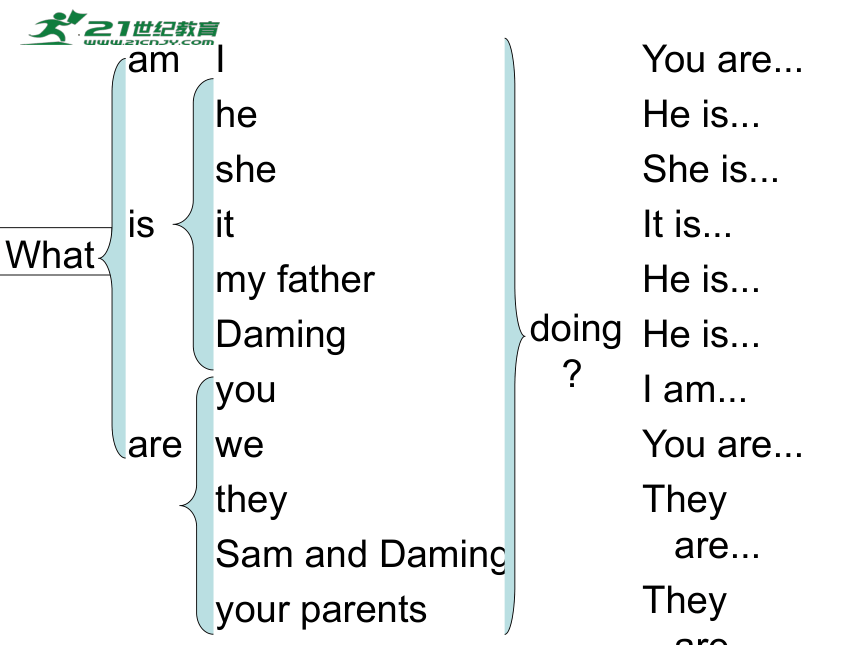 | |
| 格式 | pptx | ||
| 文件大小 | 1.3MB | ||
| 资源类型 | 试卷 | ||
| 版本资源 | 通用版 | ||
| 科目 | 英语 | ||
| 更新时间 | 2023-06-12 16:04:03 | ||
图片预览

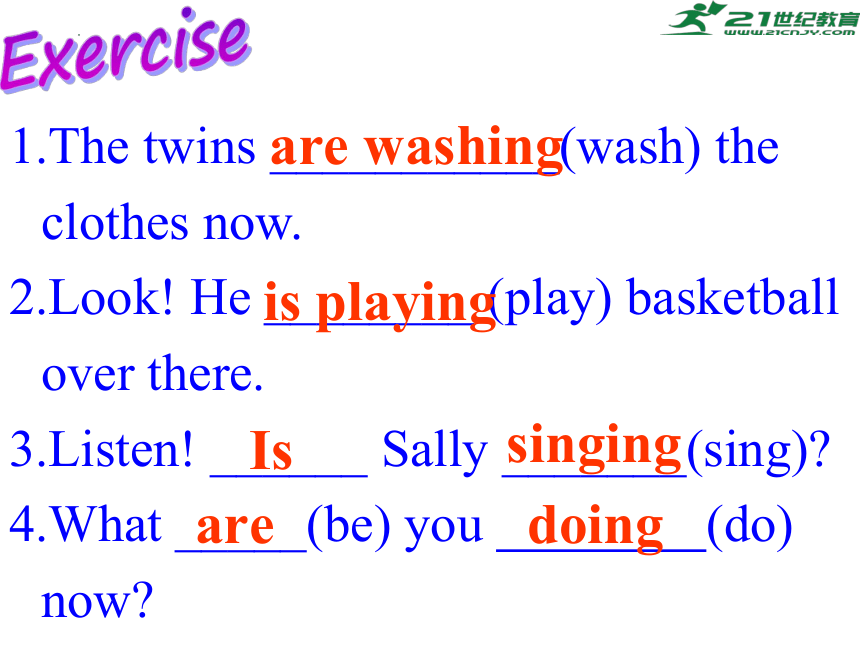
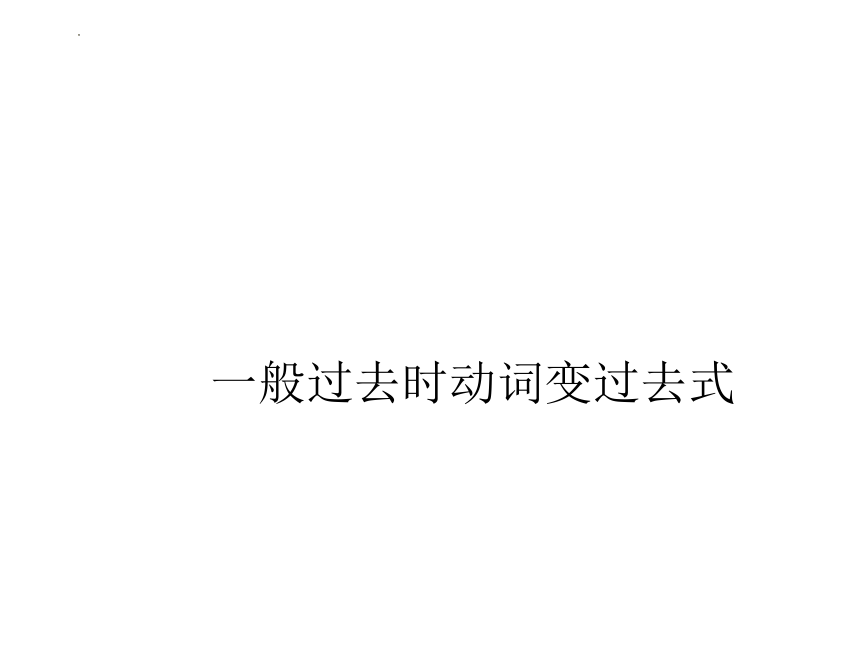
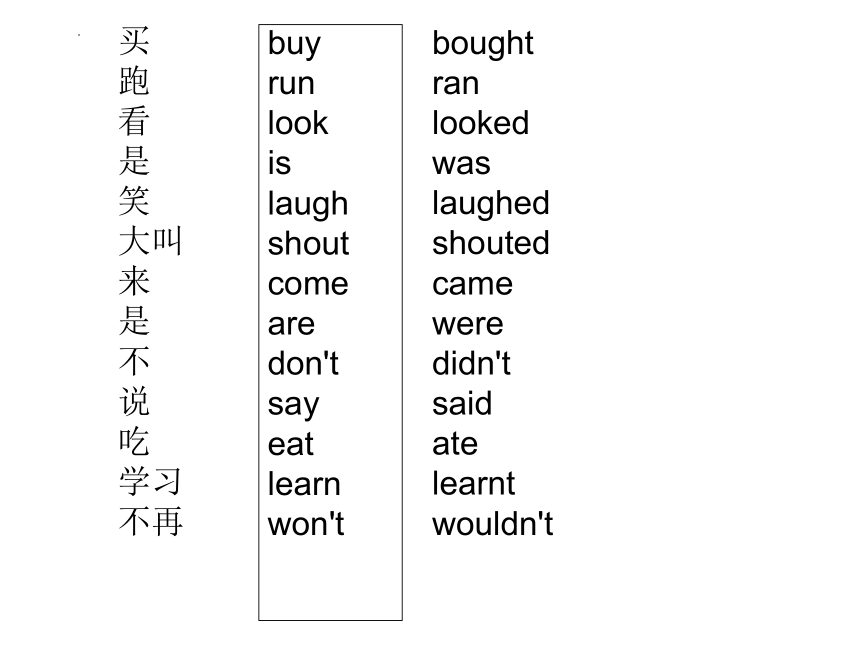
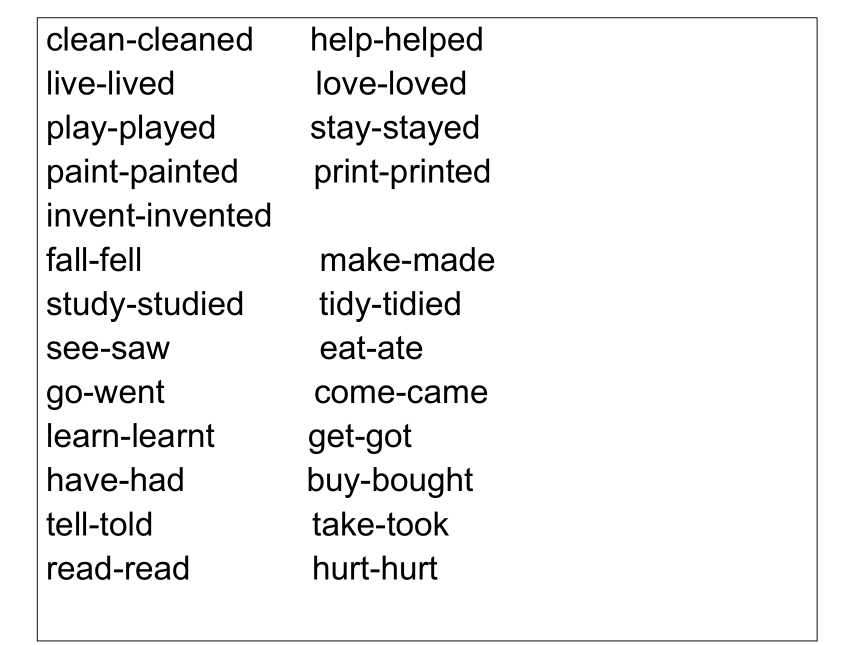
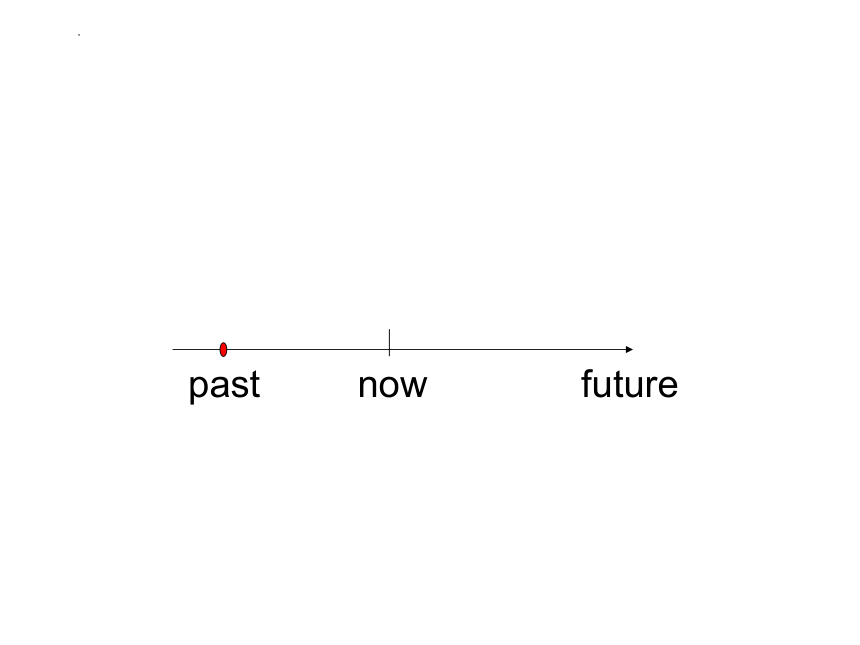
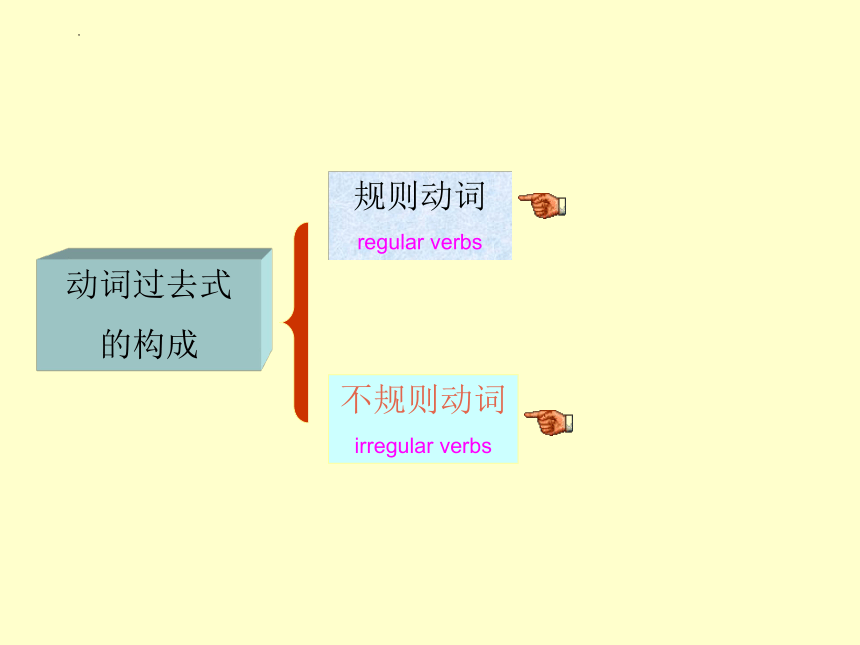
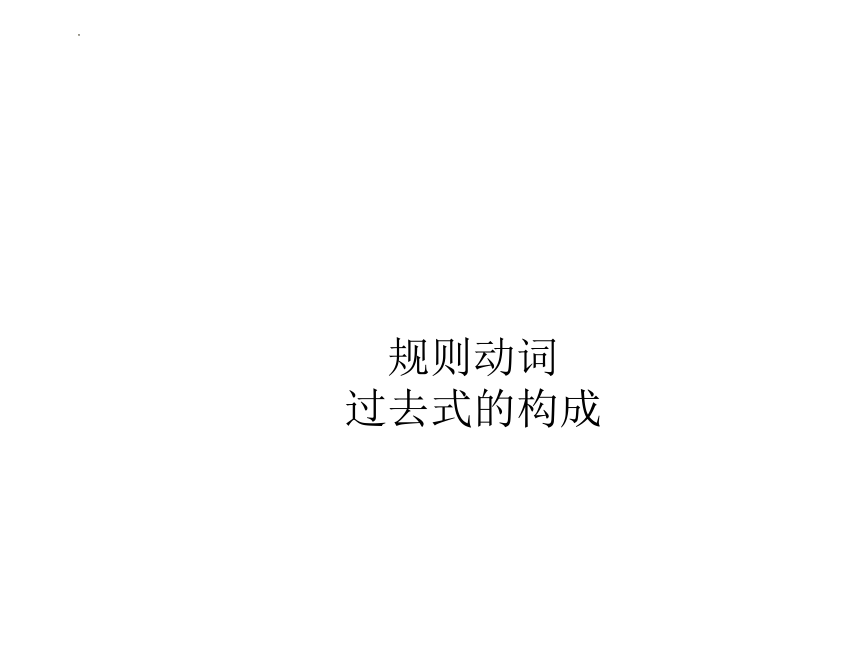
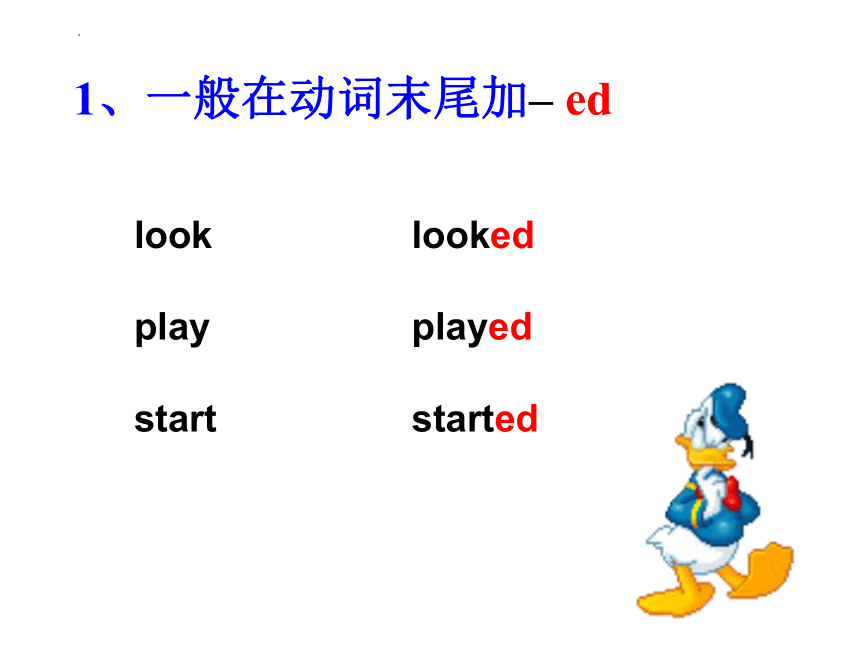
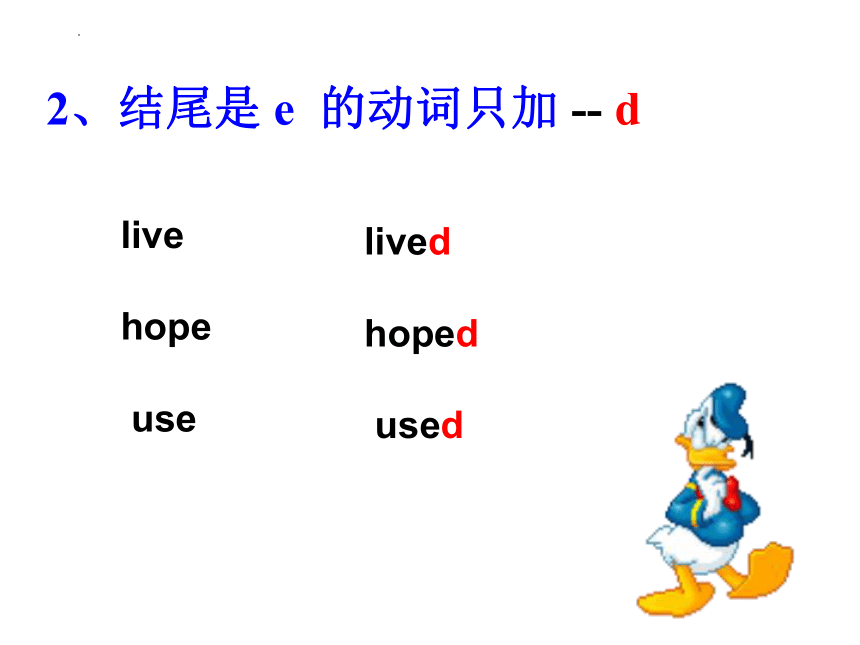
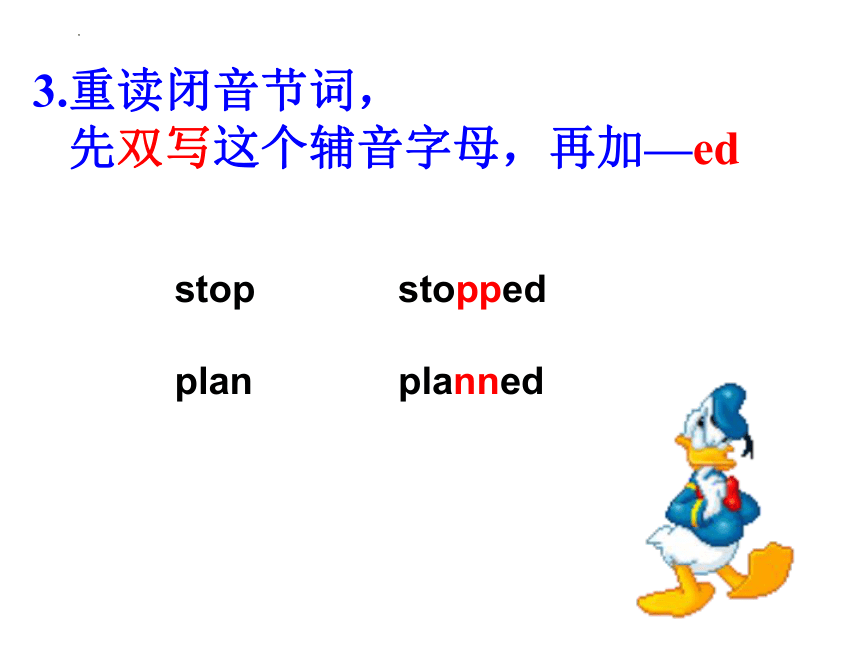
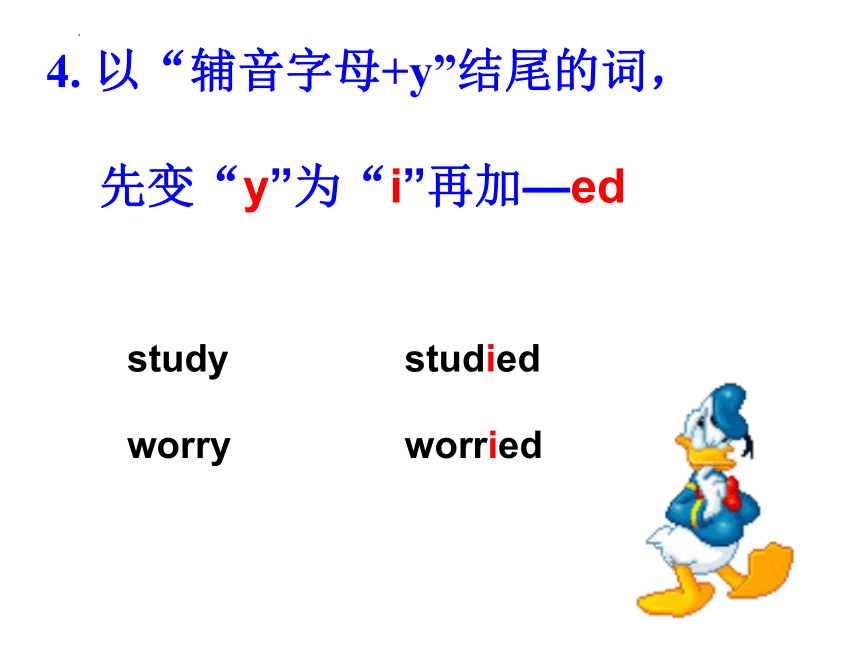
文档简介
(共62张PPT)
What
am
is
are
I
he
she
it
my father
Daming
you
we
they
Sam and Daming
your parents
doing
You are...
He is...
She is...
It is...
He is...
He is...
I am...
You are...
They are...
They are...
They are...
Exercise
The twins ___________(wash) the clothes now.
Look! He ________ (play) basketball over there.
Listen! ______ Sally _______(sing)
4.What _____(be) you (do) now
are washing
is playing
Is
singing
are
doing
一般过去时动词变过去式
buy
run
look
is
laugh
shout
come
are
don't
say
eat
learn
won't
bought
ran
looked
was
laughed
shouted
came
were
didn't
said
ate
learnt
wouldn't
买
跑
看
是
笑
大叫
来
是
不
说
吃
学习
不再
clean-cleaned help-helped
live-lived love-loved
play-played stay-stayed
paint-painted print-printed
invent-invented
fall-fell make-made
study-studied tidy-tidied
see-saw eat-ate
go-went come-came
learn-learnt get-got
have-had buy-bought
tell-told take-took
read-read hurt-hurt
past
now
future
动词过去式
的构成
规则动词
regular verbs
不规则动词
irregular verbs
规则动词
过去式的构成
1、一般在动词末尾加– ed
look
play
start
looked
played
started
2、结尾是 e 的动词只加 -- d
live
hope
use
lived
hoped
used
3.重读闭音节词,
先双写这个辅音字母,再加—ed
stop
plan
stopped
planned
4. 以“辅音字母+y”结尾的词,
先变“y”为“i”再加—ed
study
worry
studied
worried
不规则动词
过去式的构成
1.过去式与原形一样
let→let(让)
put→put (放下)
cut → cut(砍,剪)
read→read(读)
let→let(让)
put→put (放下)
2.把元音字母变成“a”
come came
give gave
drink drank
begin began
3.中间去“e” 末尾加“t”
sleep slept
keep kept
feel felt
4.把“i”变成“o”
ride rode
drive drove
5.结尾变成“ought”或“aught”
think thought
buy bought
bring brought
catch caught
6.“ow”或“aw”变成“”ew
know knew
throw threw
draw drew
7.结尾”d”变“t”
build built
spend built
剩余不规则动词
剩余不规则动词表
Infinitive Past Tense
am, is
are
do
go
have
make
get
Infinitive Past Tense
eat
say
see
stand
find
was
were
did
went
had
made
got
ate
said
saw
stood
found
Play
Played
use
used
plan
planned
study
studied
worry
worried
stop
stopped
hope
hoped
put
put
let
let
read
read
cut
cut
come
came
give
gave
drink
drank
begin
began
sleep
slept
keep
kept
feel
felt
ride
rode
drive
drove
catch
caught
think
thought
know
knew
draw
drew
build
built
do
go
have
make
get
did
went
had
made
got
eat
say
see
stand
find
ate
said
saw
stood
found
一般过去时
肯定句变否定句
Be动词类
否定句
实义动词类
1. (be动词类)在表示过去存在的状态
的句子中在was, were的后面加上not。
如:
肯定句:
He was in the park yesterday.
否定句:
→He was not in the park yesterday.
肯定句:
We were busy last week.
否定句:
→We were not busy last week.
2.(行为动词类)要在行为动词的前面加助动词didn’t. 然后把动词过去式改为动词原形。
即:didn’t + 动词原形
肯定句:
She played the violin last night.
否定句:
→She didn’t play the violin last night.
肯定句:
They swam in the lake yesterday.
否定句:
→They didn’t swim in the lake yesterday.
一般过去时否定句练习
肯定句: They made a kite a week ago.
否定句:They didn’t make a kite a week ago.
肯定句: He was ill yesterday.
否定句:He was not ill yesterday.
肯定句:The cat ate a bird last night.
否定句:The cat didn’t eat a bird last night.
一般过去时的
一般疑问句
1.把was, were放在句首,其余位置不变。
(1) He was born in Shanghai.
→ Was he born in Shanghai (一般疑问句)
→Yes, he was. (肯定回答)
→No, he wasn’t. (否定回答)
(2)They were in Li Yan’s home last night.
→ Were they in Li Yan’s home last night
(一般疑问句)
→Yes, they were. (肯定回答)
→No, they weren’t. (否定回答)
一般过去时一般疑问句及其肯否定回答
练习题
They had a good time in the park.
一般疑问句:
Did they have a good time in the park
肯定/否定回答:
Yes, they did.
No , they didn’t.
2. Ann did her homework yesterday evening.
一般疑问句:
Did Ann do her homework yesterday evening
肯定/否定回答:
Yes, she did.
No, she didn’t.
3. I read an English book last week.
一般疑问句:
Did you read an English book last week
肯定/否定回答:
Yes, I did.
No, I didn’t.
4. My brother was in the park just now.
一般疑问句:
Was your brother in the park just now
肯定/否定回答:
Yes, he was.
No, he wasn’t.
Her father _______ (read) a newspaper last night.
We _________(go) to the zoo yesterday.
______ you _______ (visit) your relatives last Spring Festival
______ he _______ (fly) a kite on Sunday
Yes, he ______.
It ______ (be) Ben’s birthday last Friday.
We all ______ (have) a good time last night.
He _________ (live) in Wuxi two years ago.
The cat ________ (eat) a bird last night.
read
went
Did
visit
was
had
lived
ate
Did
fly
did
What
am
is
are
I
he
she
it
my father
Daming
you
we
they
Sam and Daming
your parents
doing
You are...
He is...
She is...
It is...
He is...
He is...
I am...
You are...
They are...
They are...
They are...
Exercise
The twins ___________(wash) the clothes now.
Look! He ________ (play) basketball over there.
Listen! ______ Sally _______(sing)
4.What _____(be) you (do) now
are washing
is playing
Is
singing
are
doing
一般过去时动词变过去式
buy
run
look
is
laugh
shout
come
are
don't
say
eat
learn
won't
bought
ran
looked
was
laughed
shouted
came
were
didn't
said
ate
learnt
wouldn't
买
跑
看
是
笑
大叫
来
是
不
说
吃
学习
不再
clean-cleaned help-helped
live-lived love-loved
play-played stay-stayed
paint-painted print-printed
invent-invented
fall-fell make-made
study-studied tidy-tidied
see-saw eat-ate
go-went come-came
learn-learnt get-got
have-had buy-bought
tell-told take-took
read-read hurt-hurt
past
now
future
动词过去式
的构成
规则动词
regular verbs
不规则动词
irregular verbs
规则动词
过去式的构成
1、一般在动词末尾加– ed
look
play
start
looked
played
started
2、结尾是 e 的动词只加 -- d
live
hope
use
lived
hoped
used
3.重读闭音节词,
先双写这个辅音字母,再加—ed
stop
plan
stopped
planned
4. 以“辅音字母+y”结尾的词,
先变“y”为“i”再加—ed
study
worry
studied
worried
不规则动词
过去式的构成
1.过去式与原形一样
let→let(让)
put→put (放下)
cut → cut(砍,剪)
read→read(读)
let→let(让)
put→put (放下)
2.把元音字母变成“a”
come came
give gave
drink drank
begin began
3.中间去“e” 末尾加“t”
sleep slept
keep kept
feel felt
4.把“i”变成“o”
ride rode
drive drove
5.结尾变成“ought”或“aught”
think thought
buy bought
bring brought
catch caught
6.“ow”或“aw”变成“”ew
know knew
throw threw
draw drew
7.结尾”d”变“t”
build built
spend built
剩余不规则动词
剩余不规则动词表
Infinitive Past Tense
am, is
are
do
go
have
make
get
Infinitive Past Tense
eat
say
see
stand
find
was
were
did
went
had
made
got
ate
said
saw
stood
found
Play
Played
use
used
plan
planned
study
studied
worry
worried
stop
stopped
hope
hoped
put
put
let
let
read
read
cut
cut
come
came
give
gave
drink
drank
begin
began
sleep
slept
keep
kept
feel
felt
ride
rode
drive
drove
catch
caught
think
thought
know
knew
draw
drew
build
built
do
go
have
make
get
did
went
had
made
got
eat
say
see
stand
find
ate
said
saw
stood
found
一般过去时
肯定句变否定句
Be动词类
否定句
实义动词类
1. (be动词类)在表示过去存在的状态
的句子中在was, were的后面加上not。
如:
肯定句:
He was in the park yesterday.
否定句:
→He was not in the park yesterday.
肯定句:
We were busy last week.
否定句:
→We were not busy last week.
2.(行为动词类)要在行为动词的前面加助动词didn’t. 然后把动词过去式改为动词原形。
即:didn’t + 动词原形
肯定句:
She played the violin last night.
否定句:
→She didn’t play the violin last night.
肯定句:
They swam in the lake yesterday.
否定句:
→They didn’t swim in the lake yesterday.
一般过去时否定句练习
肯定句: They made a kite a week ago.
否定句:They didn’t make a kite a week ago.
肯定句: He was ill yesterday.
否定句:He was not ill yesterday.
肯定句:The cat ate a bird last night.
否定句:The cat didn’t eat a bird last night.
一般过去时的
一般疑问句
1.把was, were放在句首,其余位置不变。
(1) He was born in Shanghai.
→ Was he born in Shanghai (一般疑问句)
→Yes, he was. (肯定回答)
→No, he wasn’t. (否定回答)
(2)They were in Li Yan’s home last night.
→ Were they in Li Yan’s home last night
(一般疑问句)
→Yes, they were. (肯定回答)
→No, they weren’t. (否定回答)
一般过去时一般疑问句及其肯否定回答
练习题
They had a good time in the park.
一般疑问句:
Did they have a good time in the park
肯定/否定回答:
Yes, they did.
No , they didn’t.
2. Ann did her homework yesterday evening.
一般疑问句:
Did Ann do her homework yesterday evening
肯定/否定回答:
Yes, she did.
No, she didn’t.
3. I read an English book last week.
一般疑问句:
Did you read an English book last week
肯定/否定回答:
Yes, I did.
No, I didn’t.
4. My brother was in the park just now.
一般疑问句:
Was your brother in the park just now
肯定/否定回答:
Yes, he was.
No, he wasn’t.
Her father _______ (read) a newspaper last night.
We _________(go) to the zoo yesterday.
______ you _______ (visit) your relatives last Spring Festival
______ he _______ (fly) a kite on Sunday
Yes, he ______.
It ______ (be) Ben’s birthday last Friday.
We all ______ (have) a good time last night.
He _________ (live) in Wuxi two years ago.
The cat ________ (eat) a bird last night.
read
went
Did
visit
was
had
lived
ate
Did
fly
did
